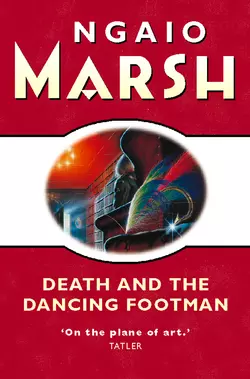Death and the Dancing Footman

Ngaio Marsh
Тип: электронная книга
Жанр: Шпионские детективы
Язык: на английском языке
Стоимость: 920.59 ₽
Статус: В продаже
Издательство: HarperCollins
Дата публикации: 16.04.2024
Отзывы: Пока нет Добавить отзыв
О книге: A winter weekend ends in snowbound disaster in a novel which remains a favourite among Marsh readers.It begins as an entertainment: eight people, many of them adversaries, gathered for a winter weekend by a host with a love for theatre. It ends in snowbound disaster. Everyone has an alibi – and a motive as well. But Roderick Alleyn soon realizes that it all hangs on Thomas, the dancing footman…